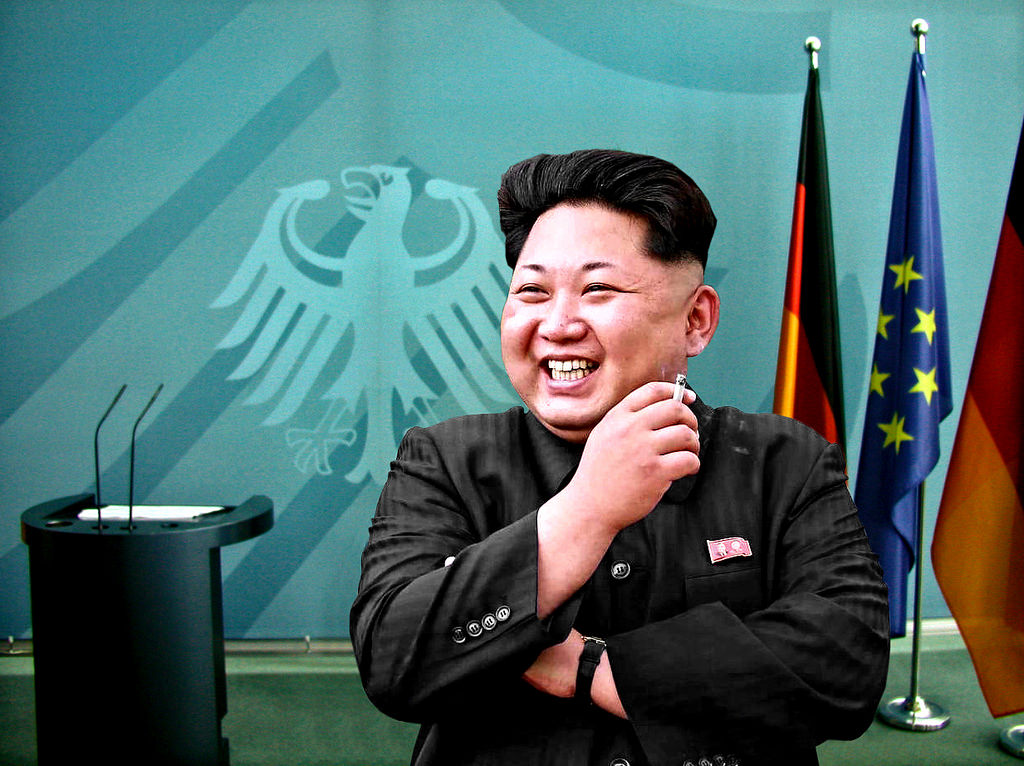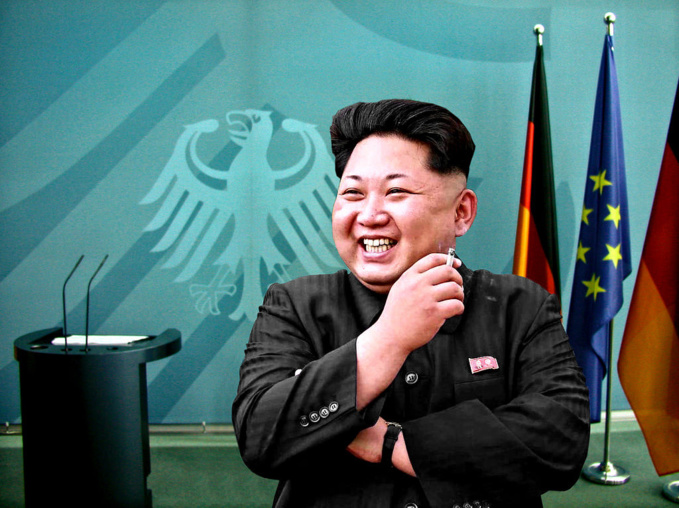Recently, the US proposed an oil embargo against North Korea, which was opposed by China and Russia. The DPRK's northern neighbors are championing the UN sanctions against Pyongyang, while firmly opposing the unilateral US sanctions against North Korea.
Russia and China pledged not to support sanctions against Pyongyang, which could adversely affect citizens of their neighbor, and this will almost certainly imply a full-scale oil embargo.
On the contrary, Russia's plan to reduce tensions on the Korean peninsula is to develop tripartite economic initiatives linking South and North Korea with Russia.
But even if Donald Trump somehow managed to convince the world of the need for an oil embargo against North Korea, North Korea seems to have enough domestic oil reserves to compensate for the loss of imports.
In addition to large coal reserves and increased dependence on green energy, North Korea's domestic reserves far exceed the amounts recorded under previous estimates.
Even before the threat of sanctions, North Korea remained self-sufficient to use its untouched oil reserves.
In 2015, when relations between the DPRK and the rest of the world were somewhat better than now, independent expert on oil exploration Michael Rego assessed the situation around the oil potential of North Korea.
His report reflected a positive picture for North Korea. The state has always sought economic self-sufficiency. This is a principle that was implicit in the program of the founder of the DPRK, Kim Il Sung, and which remains Pyongyang's main political program.
The report clearly states that, despite the sanctions that limit North Korea's ability to extract its own oil, the country has enough proven reserves to meet the needs of domestic consumption.
In 2004, the British company Aminex PLC estimated that the North Korean oil shelf off the Sea of Japan, which was first explored by the joint efforts of the DPRK and another British company in 1998, contains 4-5 billion barrels of oil.
In addition, Mongolian company HBOil conducted exploration work in the area south of Pyongyang and drilled 22 wells. Most of the wells contained oil, allowing the DPRK to extract an average of 75 barrels per day from each.
Rego's report suggests that, despite the lack of funds (mainly due to sanctions) to purchase modern drilling equipment from abroad, North Korea is still capable to extract sufficient quantities of oil to meet domestic needs.
Most of North Korea's drilling equipment as of 2015 was acquired in Romania, starting with the Ceausescu period; the country also possesses Soviet equipment.
Most experts believe that North Korea has the opportunity to reverse the development of imported equipment, rebuilding it to modern versions without the need to import any specific materials.
Despite the fact that critics of North Korea often focus on what the country lacks in terms of foreign technologies in civil, military, and energy sectors, the reality is that North Korea has done everything to develop its own computer systems, weapons systems and systems of energy production.
Based on the demands of North Korea, as well as independent experts and contractors who have no reason to exaggerate North Korea's oil reserves, the country uses existing oil production systems more efficiently. Besides, the country is creating additional new systems based on reliable old models to sufficiently protect its energy sector from the embargo.
In any case, the political tension created by Donald Trump between the US, China and Russia means that such an embargo on oil supplies is unlikely. But in any case, North Korea will be immune to such threats.
source: theduran.com
Russia and China pledged not to support sanctions against Pyongyang, which could adversely affect citizens of their neighbor, and this will almost certainly imply a full-scale oil embargo.
On the contrary, Russia's plan to reduce tensions on the Korean peninsula is to develop tripartite economic initiatives linking South and North Korea with Russia.
But even if Donald Trump somehow managed to convince the world of the need for an oil embargo against North Korea, North Korea seems to have enough domestic oil reserves to compensate for the loss of imports.
In addition to large coal reserves and increased dependence on green energy, North Korea's domestic reserves far exceed the amounts recorded under previous estimates.
Even before the threat of sanctions, North Korea remained self-sufficient to use its untouched oil reserves.
In 2015, when relations between the DPRK and the rest of the world were somewhat better than now, independent expert on oil exploration Michael Rego assessed the situation around the oil potential of North Korea.
His report reflected a positive picture for North Korea. The state has always sought economic self-sufficiency. This is a principle that was implicit in the program of the founder of the DPRK, Kim Il Sung, and which remains Pyongyang's main political program.
The report clearly states that, despite the sanctions that limit North Korea's ability to extract its own oil, the country has enough proven reserves to meet the needs of domestic consumption.
In 2004, the British company Aminex PLC estimated that the North Korean oil shelf off the Sea of Japan, which was first explored by the joint efforts of the DPRK and another British company in 1998, contains 4-5 billion barrels of oil.
In addition, Mongolian company HBOil conducted exploration work in the area south of Pyongyang and drilled 22 wells. Most of the wells contained oil, allowing the DPRK to extract an average of 75 barrels per day from each.
Rego's report suggests that, despite the lack of funds (mainly due to sanctions) to purchase modern drilling equipment from abroad, North Korea is still capable to extract sufficient quantities of oil to meet domestic needs.
Most of North Korea's drilling equipment as of 2015 was acquired in Romania, starting with the Ceausescu period; the country also possesses Soviet equipment.
Most experts believe that North Korea has the opportunity to reverse the development of imported equipment, rebuilding it to modern versions without the need to import any specific materials.
Despite the fact that critics of North Korea often focus on what the country lacks in terms of foreign technologies in civil, military, and energy sectors, the reality is that North Korea has done everything to develop its own computer systems, weapons systems and systems of energy production.
Based on the demands of North Korea, as well as independent experts and contractors who have no reason to exaggerate North Korea's oil reserves, the country uses existing oil production systems more efficiently. Besides, the country is creating additional new systems based on reliable old models to sufficiently protect its energy sector from the embargo.
In any case, the political tension created by Donald Trump between the US, China and Russia means that such an embargo on oil supplies is unlikely. But in any case, North Korea will be immune to such threats.
source: theduran.com



















